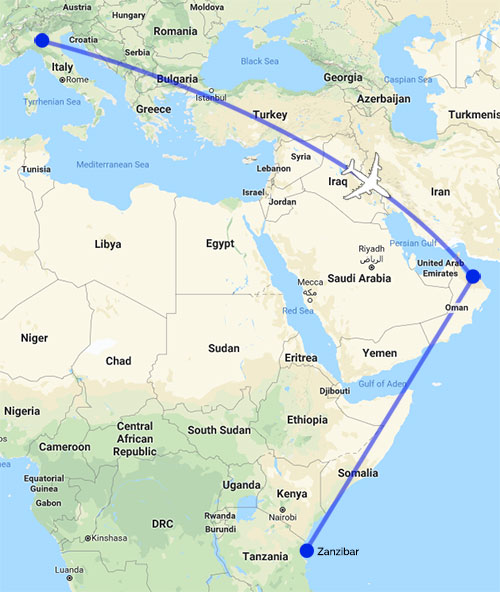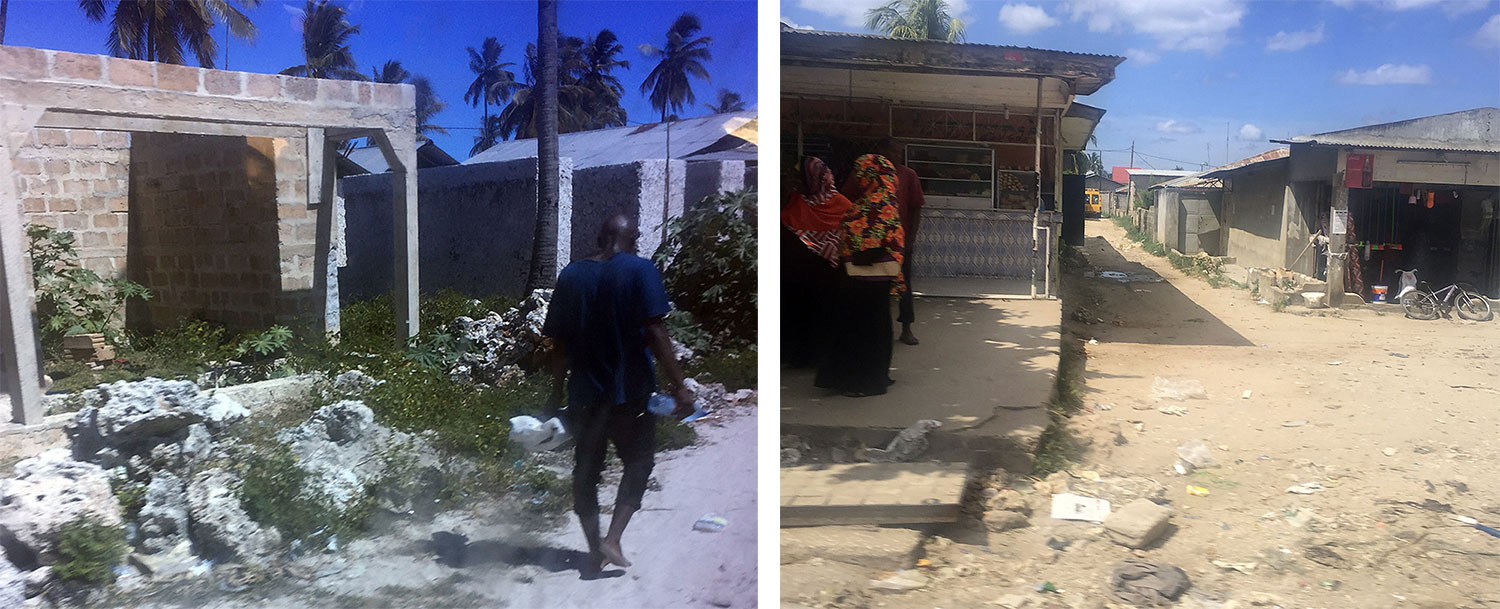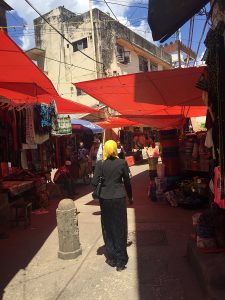The theory goes like this: The more we learn language, the more it structures our thinking, the more it structures how we learn, how we store and retrieve memories. This is why we have such trouble remembering things from when we were very young. Those memories were stored using a very different system. I’ve been reading about this lately. I’m not in the field or anything. I’m simply trying to make sense of something that happened.
Listen below. The transcript follows.
And what happened, happened when I was four years old. I know this because my brother was still a baby, still months away from walking. And I remember that it was Fall. The air was crisp, and the leaves were falling.
We were at the airport—not our hometown airport, not the one we usually flew out of. We were in the middle of a trip, on a layover. We had been there a couple hours and it was nearing our boarding time.
We traveled a lot back then. My parents had already taken me to Europe and Asia, and had made plans to see Tanzania. They assumed that when I began school the next year, the opportunities would dwindle and they’d be locked in to traveling during summer vacations and school holidays, having to travel at the same time as everyone else. And having a second child compromised their travel plans even more.
Across from us, there was a family: parents, a boy, and a girl. The boy was a couple years older than me, the girl about the same age. The boy was all over the place, running, climbing, playing with spaceships and astronauts. The girl worked on a puzzle book.
As the airline agent began boarding the first-class passengers, I saw a man walking straight toward us. He walked deliberately. He had an energy about him. I remember him as looking very intense. He wore a jean jacket, jeans, and boots. His face was sunburned. I was nervous about him.
But he was not concerned with me. He was looking at the mother of the family across from us. He made eye contact with her, then looked at the husband, and the kids, then turned around, and was gone.
The mother jumped up. She said something to her husband, then ran off after the man, and disappeared into the crowd.
Everyone was boarding now. The family looked confused and anxious. The kids sat on the edge of their chairs, barely moving. I looked for the mom. Where did she go? Would she make it back in time?
When it was our turn, I didn’t want to go. My father had to pull me toward where the agent was taking boarding passes.
We got on the plane. I kept looking for them. We waited in the aisle. People were putting their suitcases into the overhead. I couldn’t see anything. After we were seated, I stood up on my chair. I saw four empty seats. My father told me to sit down, and buckled me in.
They’re not there, I said to my mom, who was occupied with my brother.
It’ll be fine, she told me.
The seats were eventually taken by another family and the plane took off.
I have no memory of the vacation, where we went, what we saw.
This image though, the woman disappearing into the crowd, was always close at hand. I would wonder about the sunburned man. I would wonder if they made it to their destination.
This occupied my mind for hours every day for months.
Penny for your thoughts, my mother would say.
I’d shrug and say nothing, or make something up.
I dreamed about this often, but never an entire dream revolving around this one image. It was spliced in at random places, like a practical joke played by a theater projectionist. I’m swimming in the ocean, I’m running through the forest, I’m falling off a building—the man enters, looks at the woman and her family, then leaves. The woman explains, runs after him, disappears. I’d wake up, and my mind would race for hours.
The scene would play across my daydreams as well—whenever I was bored in school, or riding the bus, or on long car rides to my grandparents’ house, superimposing itself over the wheat fields as I looked out the window. It was especially on my mind when we flew. I looked for them in every airport.
I’d tell myself, as I got older, one way or another, this family reached some sort of equilibrium again. I’d tell myself, that the woman made it back in time, that they boarded a plane, that they made it to their destination. I’d tell myself, that the kids grew up and everything turned out fine.
I was not able to convince myself. It was like wanting to know how characters’ lives continue after the book or movie is over, except that these were real people. It was a real thing that happened in front of me.
I sketched the scene over and over. I wrote stories. I provided endings—none of which rang true.
The image needed closure and I had no idea how to accomplish that.
Then, few years ago, while flying on business, I had a layover. I had some time, so I headed toward my terminal, hoping to grab some dinner and a drink, and found myself at the same gate I had been at many years earlier, the gate where the woman had disappeared.
I sat down in the same seat, and replayed the whole scene in my head.
I stayed for as long as I could before having to run to my gate. I was excited. I knew where it happened. I felt optimistic I could uncover more.
I began booking flights with layovers at that airport. Not long layovers—I did not want my wife getting suspicious, and I did not want to explain. I could not explain. I had no confidence in my ability to explain. I did not feel I could do the image justice. I did not trust myself to defend it to another person. I did not want to fail the image.
Each time, I would get to the gate as early as I could, and try to take everything in. There had to be something I had overlooked. But each time, I found nothing. Being there did not shake anything loose in my head. I was no longer so optimistic.
After a couple more times, sitting in that chair, I realized that the image was not becoming more clear, that the crowded gate of the present was overwriting the image of the disappearing woman. It was overwhelming it. Despite the emotional charge the image had for me, it was fading away.
I tried to hold off booking there but I could not help myself. I’d arrive, sit there, sickened, each time able to recall less and less.
Then, last year, I found I could no longer book the layover. The terminal was going through a renovation.
I barely slept during that time. I asked my doctor for sleeping pills, telling her I was under a lot of pressure at work, telling her I was traveling a lot, telling her that my relationship with my wife had become stressful.
Some months later, I was finally able to book the layover again. It took every bit of willpower I had to not run through the airport. When I arrived at the newly remodeled gate, I realized that I had not thought this through, that I was not the least bit prepared for what I’d see.
It was totally changed. It might as well have been an entirely different airport in an entirely different city. I felt nothing there.
It was all gone. Nothing remained.






 The driver honks and the gate to the resort is opened. The resort is perfect—immaculate, beautiful, a postcard to be snapped in every direction—a juxtaposition to what we’ve seen so far. We meet the owner, a genial German, and his girlfriend, a warm and friendly Zanzibari. Aside from guests, she and their daughters are the only females we will see at the resort. Everything is done by men.
The driver honks and the gate to the resort is opened. The resort is perfect—immaculate, beautiful, a postcard to be snapped in every direction—a juxtaposition to what we’ve seen so far. We meet the owner, a genial German, and his girlfriend, a warm and friendly Zanzibari. Aside from guests, she and their daughters are the only females we will see at the resort. Everything is done by men.





